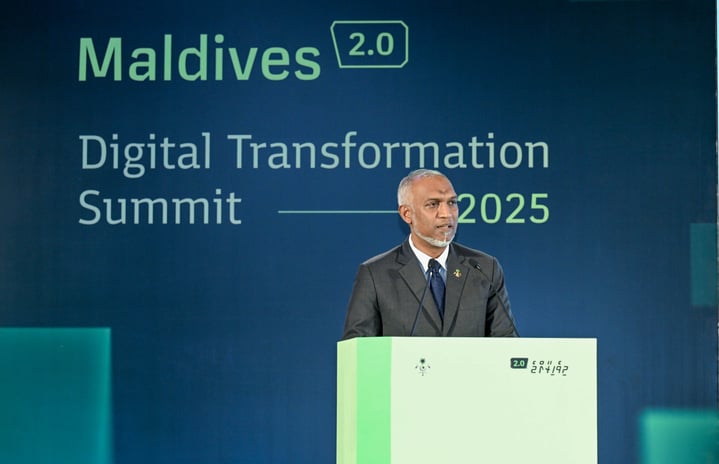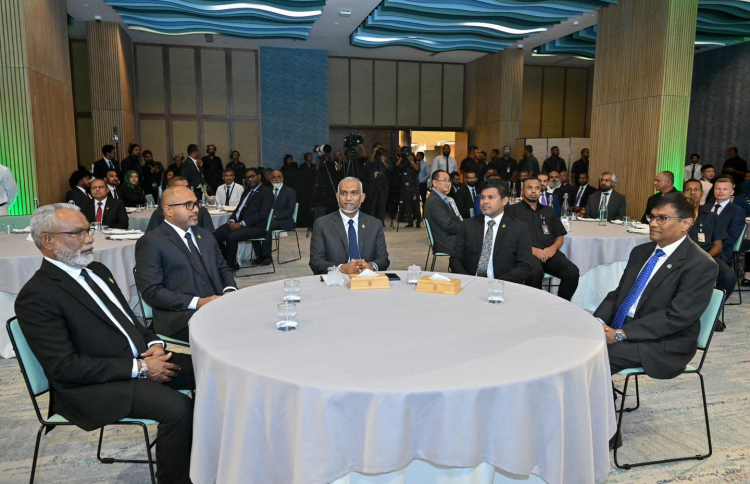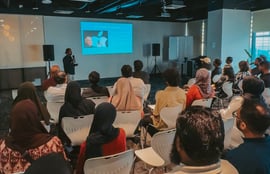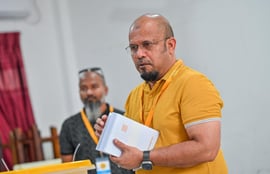President Dr Mohamed Muizzu has said that the eradication of corruption as one of the primary goals of Maldives 2.0.
This initiative is a nationwide digital transformation agenda officially launched at a ceremony held at Barcelo Nasandhura last night by President Dr Mohamed Muizzu.
Speaking at the inaugural session of Maldives 2.0 Digital Transformation Summit, President Muizzu highlighted the importance of digitalization in the country’s path to becoming a developed nation by 2040.
He said that leveraging technology to enhance transparency and accountability is key to combatting corruption.
President Muizzu highlighted the implementation of a unified, interconnected digital ID system as a cornerstone of the reform. The system aims to enable seamless access to both public and private services, supported by robust national cybersecurity infrastructure. He added that a comprehensive legal framework to support this transformation is currently being developed.
President Muizzu thanked the Estonian government for its support and guidance, applauding Estonia's globally recognized success in digital governance.
He highlighted Estonia's rise to second place in the 2025 World Press Freedom Index as an example of how effective digitalization can bolster transparency, public trust, and information accessibility.
President Muizzu expressed optimism that Maldives could achieve similar outcomes through a tailored and responsible digital rollout.
President Muizzu further shared his ambition to digitally transform the Maldives workforce, with a target of having one-third of all workers engaged in remote employment by 2028. He called for broad cooperation across government, private sector, and civil society to ensure the success of Maldives 2.0.
“Digitalization is not just a tool, it is a necessity for good governance and sustainable development. It is our shared responsibility to embrace change, eliminate corruption, and move forward together,” he said.
Maldives 2.0 envisions the integration of digital services across all state institutions over the next three years, positioning technology as a catalyst for efficient, secure, and citizen-centric governance.





